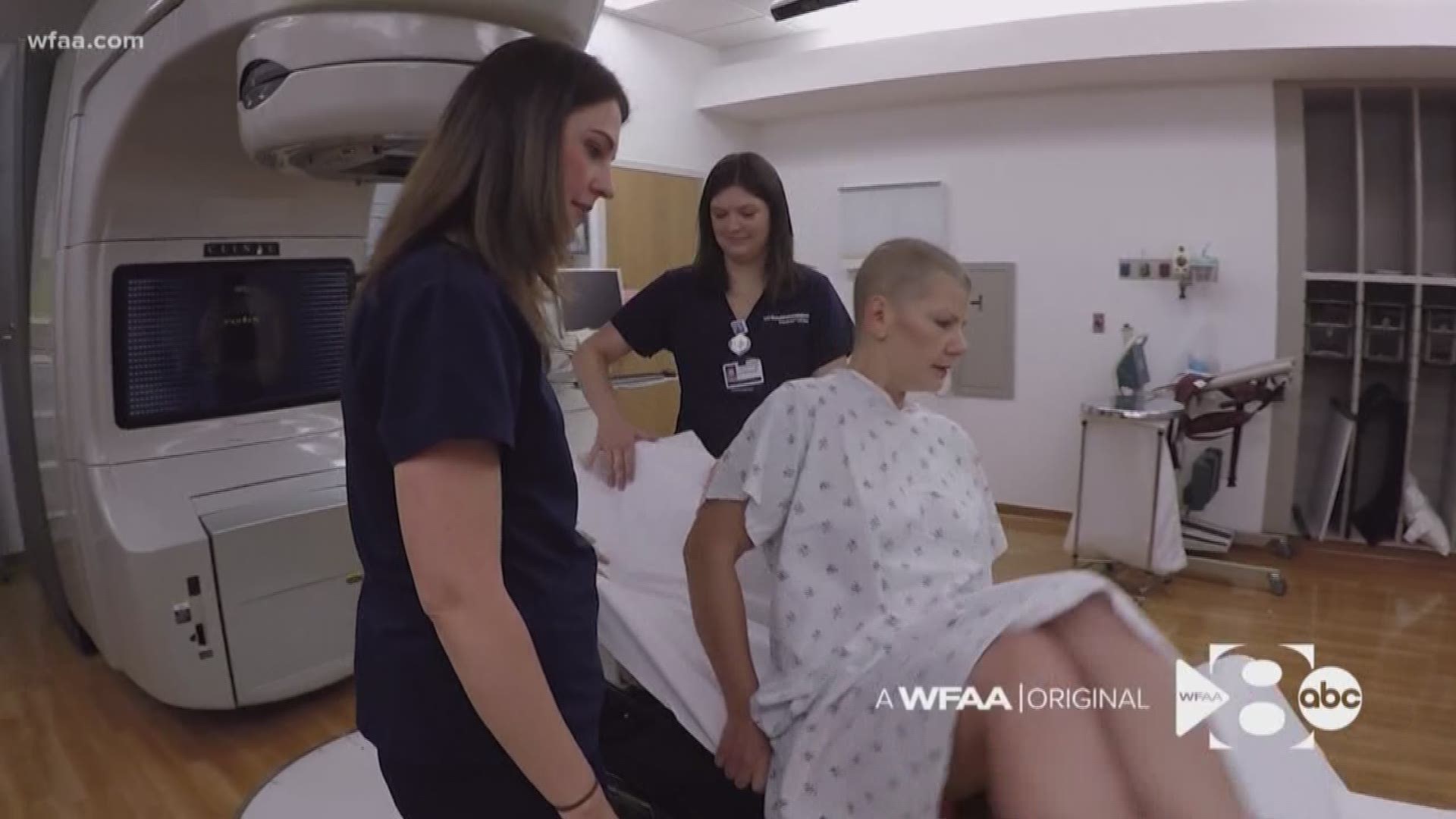For Amie Goins, every birthday is a gift. Yes, even 47.
"There were weeks when it was really pretty bad," said Goins, a wife and mom of two sons. "I'm not going to sugarcoat it at all."
Last year, after a routine mammogram, Goins was diagnosed with stage two breast cancer.
"At first, I didn't want to tell anybody," Goins said. "I didn't want anybody to know because I've been healthy my whole life. I didn't want to be perceived as sick or weak."
An avid runner and weightlifter, Goins feared that a cancer diagnosis meant that she would miss out on the activities that she loves most.
"I did a 5K on Jan. 28 and then on Jan. 29, I had my first chemotherapy infusion," Goins recalled of events earlier this year.
But she wouldn't stop. Goins ran 10 miles per week and fought through the finish lines of 14 5k races during a grueling year of chemotherapy and surgery.
"During cancer treatment, maintaining physical activity is important," said Dr. Vlad Zaha, who studies cancer patients with heart problems.
He is part of an emerging field called cardio-oncology. As cancer patients live longer, doctors like Zaha have grown more curious about the effect of certain chemo drugs on their hearts.
"Some cancer treatments can affect the heart, some cancer treatments can affect the blood vessels, and other treatments can affect how the blood is clotting or how thin the blood is," said Zaha, an assistant professor at UT Southwestern.
As part of her treatment, Goins was taking anthracyclines, a class of chemotherapy drugs used to treat breast cancer patients. For some patients, those medicines can weaken the heart and lead to heart failure. Worried about how powerful chemo drugs would impact her body long-term, Goins started logging her miles and times as an experiment to track the toxic effect of the anthracyclines on her heart.
"I thought that was kind of interesting to have an actual piece of data to show – this is what the drug takes out of you from a cardiovascular standpoint," Goins said.
Doctors stood by Goins' decision to keep running.
"We encouraged her to maintain physical activity every day, even during the time when she was feeling fatigued just adjusting the speed and intensity of the physical activity," Zaha said.
He added that if you have a strong background in fitness, exercise can improve how some cancer patients tolerate chemotherapy and help with recovery because it keeps the heart strong.
Of course, for Goins, it wasn't always easy.
"There were weeks when I thought I can't get across that finish line," she said.
But those moments were eclipsed by other memories – like the time when she won a 5K in her age group during the most intense part of her treatment.
As for how she physically did it? Goins upped her protein, made running a regular commitment on her calendar and established a devoted exercise partner – in this case, her husband.
"I wish that there was a definite finish line that you could cross with cancer treatment where you could say I'm done, woohoo, and they put a little medal on you," Goins joked, knowing that her path is far from over.
Still, she chooses to repeat a simple mantra: "The day you stop moving is the day you start dying."
Words that she takes to heart and hopes you will, too.

